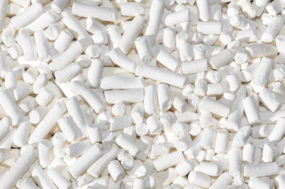Derek M. Bickhart Beltsville, Maryland Research Geneticist (Animal) Animal Improvement Programs Laboratory, USDA's Agricultural Research Service
What education are you bringing with you to this position?
I received a bachelor's degree in biology from Fairfield University in 2004. I then went on to receive a Ph.D. in genetics and genomics from the University of Connecticut in 2010. I also worked for two years as a postdoctoral fellow in the USDA's Agricultural Research Service.
Please describe your background in animal science.
I am actually a new convert to animal science, having begun my career as a molecular biologist studying microbial genetics at the University of Connecticut. I started working in cattle genomics when I became a postdoc at the USDA in August of 2010. I feel that my diverse background could allow me to contribute some new insight to the field and that my experience working with large datasets is applicable to the current situation in cattle genomics.
What territory will you cover?
I will work with the dairy cattle genotype and phenotype data that is processed at AIPL. The database includes genotypes from foreign partners such as Canada, Italy and the United Kingdom as well as breeding values for many traits from the many countries participating in Interbull.
What are your new responsibilities?
My major responsibility will be to work with other AIPL researchers to improve the reliability of genetic predictions made with dairy cattle genotypes.
I will also work closely with the Council on Dairy Cattle Breeding (CDCB) as we transition our genomic prediction pipelines to their control and maintenance. Additionally, I will provide support and data analysis to several ongoing international and domestic collaborations.
What previous positions have you held?
This will be my first permanent position as a scientist that does not involve a fellowship or research assistantship.
What excites you most about working in your new role?
I feel that the most exciting aspect of this job will be the challenge of working with large amounts of data to create a practical application that benefits dairy farmers. While I have experience working with large datasets, I realize that this new position will challenge me to consider the practicality of my experiments. I look forward to making a positive impact in the selective breeding of dairy cattle.
How will you, in your new role, be of most help to dairy producers?
I will work closely with other AIPL researchers to improve genetic predictions on dairy cattle and to pass on these prediction algorithms to the industry. Much of the benefit of this work will go towards improving the feed efficiency, milk production and daughter pregnancy rate of the U.S. dairy herd, among other beneficial traits.
Why did you choose this organization?
AIPL researchers have made a very large impact on the dairy industry by providing genomic evaluations and by performing novel research involving qualitative traits. The increase in milk production and efficiency from the U.S. dairy herd due to guided genetic selection speaks volumes about their accomplishments. I am very excited about the possibility of contributing to their research group.
In addition, the scientists and support staff are all great people who contribute to a very positive work environment. PD



